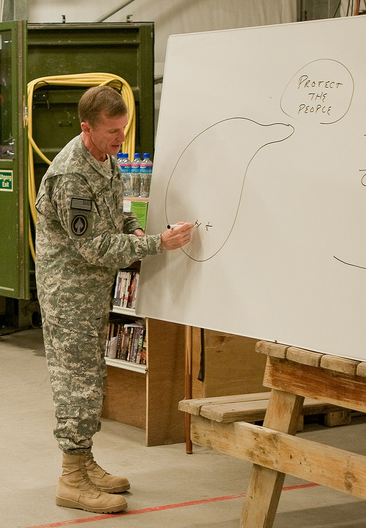Iran Loads Domestically Produced Fuel Plates into Tehran Reactor
In a move that is sure to disappoint war hawks who have been convinced that Iran’s enrichment of uranium to 20% has been to produce material for further enrichment to the 90%+ needed for nuclear weapons, Iran today very publicly had President Mahmoud Ahmadinejad load the first domestically produced nuclear fuel plates (which use 20% enriched uranium) into the Tehran reactor which is used to produce medically useful radioisotopes. From Mehr News:
The Tehran reactor was loaded with domestically produced nuclear fuel plates during a ceremony held on Wednesday to unveil Iran’s latest nuclear achievements.
President Mahmoud Ahmadinejad, Foreign Minister Ali Akbar Salehi, Supreme National Security Council Secretary Saeed Jalili, Atomic Energy Organization of Iran Director Fereydoun Abbasi, presidential aide Mojtaba Hashemi-Samareh, the Chinese and Russian ambassadors to Iran, and a number of other foreign diplomats attended the event.
During the ceremony, a number of domestically produced radioisotopes, which are used for the treatment cancer, were also unveiled.
The same article also noted that Iran has increased its capacity for low-grade enrichment to 3.5%:
On Wednesday, the first cascade of a new generation of centrifuges was also installed at the Natanz nuclear enrichment facility and was brought on line.
With the installation of the new centrifuges, the capacity of the facility for the production of 3.5 percent enriched uranium was increased by 50 percent.
Further frustrating those who want to say Iran is moving rapidly toward construction of a nuclear weapon, Iran also took the next formal steps toward re-establishment of the Group 5 + 1 negotiations on nuclear technology:
Iran’s chief negotiator and Supreme National Security Council (SNSC) Secretary Saeed Jalili sent a reply to EU foreign policy chief Catherine Ashton’s letter about talks between Tehran and the six world powers, and welcomed resumption of negotiations between the two sides.
According to the secretariat of Iran’s Supreme National Security Council, in the letter which was delivered to Ashton’s office on Wednesday, Jalili welcomed the readiness of the Group 5+1 (the five permanent UN Security Council members – Russia, China, Britain, France and the US plus Germany) to resume talks with Iran.
The Iranian chief negotiator underlined in his letter that returning to the negotiation table would be the best means to broaden cooperation between the two sides.
Despite the fear-mongering over Iran developing a nuclear weapon, Iran provided its alternate explanation yet again for why it had to produce its own 20% enriched uranium for the Tehran reactor:
After Iran announced to the IAEA that it had run out of nuclear fuel for its research reactor in Tehran, the Agency proposed a deal according to which Iran would send 3.5%-enriched uranium and receive 20-percent-enriched uranium from potential suppliers in return, all through the UN nuclear watchdog agency.
The proposal was first introduced on October 1, 2010, when Iranian representatives and diplomats from the Group 5+1 held high-level talks in Geneva.
But France and the United States, as potential suppliers, stalled the talks soon after the start. They offered a deal which would keep Tehran waiting for months before it could obtain the fuel, a luxury of time that Iran could afford as it was about to run out of 20-percent-enriched uranium.
Stay tuned for further developments to see how Iran’s use of a large portion of its 20% enriched uranium in the Tehran reactor will still result in their being described as on the fast track to a weapon by those who want a war there.



